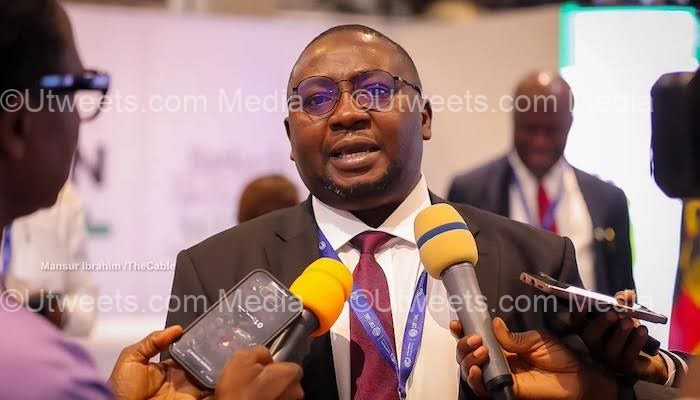The Federal Government has issued an urgent directive to help prevent more collapses of the national power grid. Recall that on Thursday, the national grid collapsed yet again, marking the 11th of such incidents since January 2024. The latest incident occurred following a sudden rise in frequency from 50.33Hz to 51.44Hz, disrupting power in many areas. ...Tap To Read The Full Story Here | ..Tap To Read The Full Story Here...
Reacting to the development, Minister for Power, Mr. Adebayo Adelabu, has called for the replacement of outdated equipment and immediate action on recommendations made by an investigative committee.
Minister Adelabu announced that the aged equipment will be replaced within six months.
The Special Adviser to the Minister, Mr. Bolaji Tunji, confirmed in a statement that all agencies involved in managing the nation’s power grid, including the Transmission Company of Nigeria (TCN), are expected to start implementing these recommendations immediately. He explained that the government’s goal is to finally provide a lasting solution to the grid collapse issues that have caused ongoing disruptions.
Notedly, the inter-agency committee, set up to find out why the national grid keeps collapsing, delivered its report to the Minister on November 6. The committee found that old equipment, poor maintenance practices, and other critical challenges are the main reasons for the frequent grid failures. They recommended a series of actions to improve the grid’s reliability over the next month, six months, and one year.
In the short term, or within the next month, the committee recommended that the government take quick steps such as reviewing and adjusting relay systems, especially at critical points in the grid. They also urged training staff to improve maintenance and system operations, testing key equipment to ensure it is reliable, developing a maintenance plan focused on reliability, and speeding up critical ongoing projects that could help prevent future collapses.
In the medium term, within the next six months, the committee recommended further actions to enhance the grid. These include replacing old and faulty equipment, improving control and communication systems that help monitor the grid, attracting private investment to the power sector, installing Internet of Things (IoT) devices to better monitor power lines and generation units, and securing steady gas supplies for power generation. The committee also advised implementing security measures to protect against vandalism and power theft.
Looking ahead to the next year, the committee suggested enhancing the distribution network and encouraging decentralized grid management, upgrading the grid to a “smart” system that can better handle demand and disruptions, and replacing outdated equipment while introducing renewable energy sources. They also recommended installing optical ground wire (OPGW) technology to replace old optic fibre systems and training more skilled personnel to maintain the grid and manage power effectively.
Despite the fresh directive by the government, the Transmission Company of Nigeria (TCN) has cautioned that the latest grid failure may not be the last. TCN’s General Manager of Public Affairs, Ndidi Mbah, stated that due to ongoing repair work on critical infrastructure, additional incidents could still happen before stability is fully achieved.



